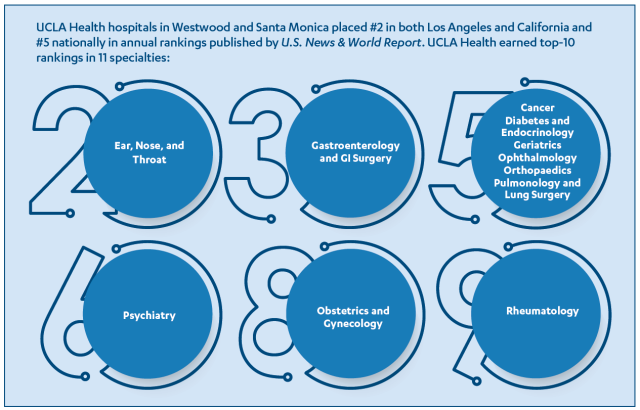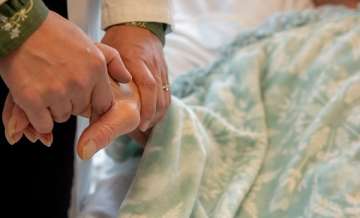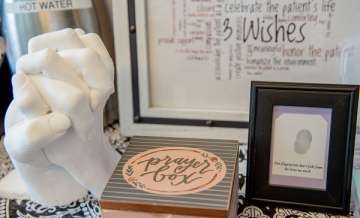Hospital Initiatives
Hospital Initiatives: Philanthropic Needs and Priorities
Support our Greatest Needs in Patient Care
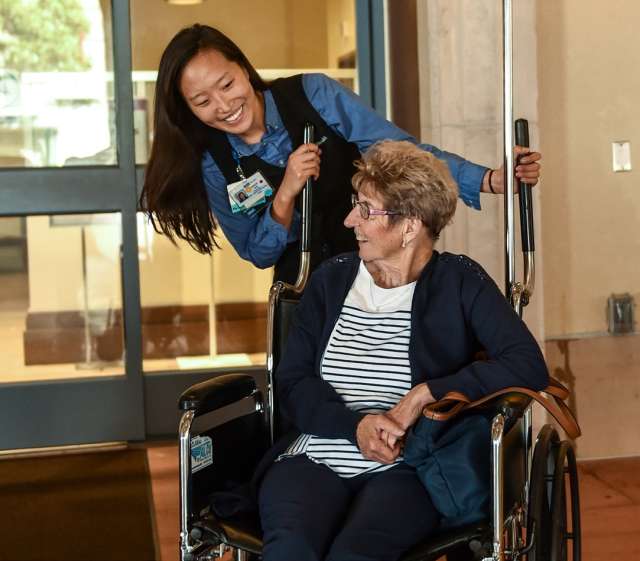
UCLA Health is grateful for the philanthropic support the Hospital System receives to fulfill its mission to deliver leading-edge patient care, research, and education, with an emphasis on helping vulnerable patients, clinical innovation, and improvements to the care environment.
Its expansive clinical care in areas such as cancer and solid organ transplant, along with its 12 nationally ranked subspecialties, enables UCLA Health to make a profound difference in the lives of the people of Los Angeles and those around the world needing specialized medical care.
Areas in Need of Discretionary Support
These areas focus on Ronald Reagan UCLA Medical Center, including UCLA Mattel Children’s Hospital and the Stewart and Lynda Resnick Neuropsychiatric Hospital at UCLA, as well as UCLA Santa Monica Medical Center:
- Care for vulnerable individuals seeking medical treatment at UCLA, including complex cases of great financial need
- Opportunities that require rapid implementation
- Replacement of and upgrades to medical equipment systems due to age/use and advances in technology
- Clinical innovation and novel technology advancement, treatments, and patient care delivery
- Patient and caregiver experience enhancements
- Capital improvements to ease capacity constraints
COVID-19 and the UCLA Health Strategy
COVID-19 is an unprecedented public health crisis that has strained health care systems globally. UCLA implemented a successful emergency preparedness strategy for COVID-19, beginning with expanding capacity to care for an influx of patients at both Ronald Reagan UCLA Medical Center and UCLA Santa Monica Medical Center. UCLA Health continues to:
- Examine the genesis of this virus to halt its spread
- Train professionals to manage highly infectious diseases
- Lead research and discovery to develop therapeutics and vaccines
- Define the research and care landscape that puts our community and its residents first
Learn More About Our Programs
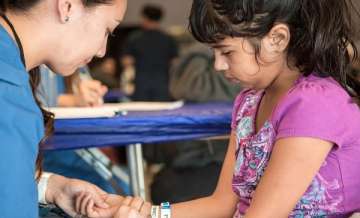
Care Coordination & Clinical Social Work
Assists patients with programs and services for vulnerable populations and patients with greatest need.
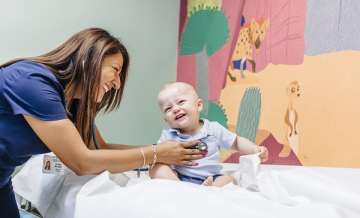
Chase Child Life Program at UCLA Mattel Children's Hospital
Provides therapeutic activities, including art, music, and play, to children and adolescent patients.
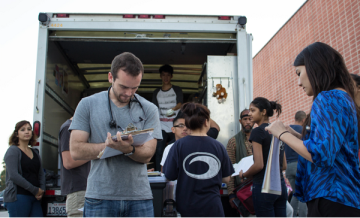
Community Partner Organizations
Include Venice Family Clinic, Orthopaedic Institute for Children, and the Rape Treatment Center at UCLA Santa Monica Medical Center.

Emergency Medicine
Provides expert care for more than 100,000 patients per year through two world-class emergency departments (Westwood and Santa Monica) open 24/7.

Integrative Medicine Collaborative
Blends conventional medicine with evidence-based non-pharmacological approaches to address the physical, emotional, mental, social, and spiritual elements that influence health.
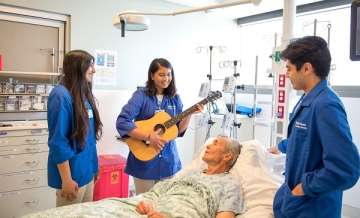
Music at the Med and In-Patient Arts Programs
Enhances patient, family, and hospital staff well-being to promote healing and a positive environment.

Nursing
Provides highest quality care through Magnet-designated nursing programs; supports continuing education and research goals of UCLA Health hospital nurses.
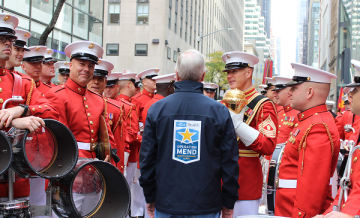
Operation Mend
Provides vital surgical and mental health programs for post-9/11 U.S. military service members and veterans.
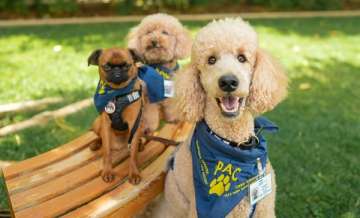
People-Animal Connection
Provides animal-assisted therapeutic activities for patients and caregivers.
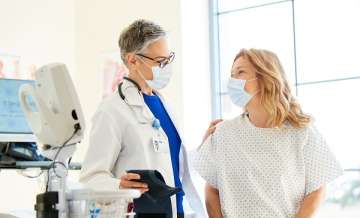
The Simms/Mann–UCLA Center for Integrative Oncology
The center’s programs help patients and family members optimize their wellness and address the challenges they face throughout the cancer experience.
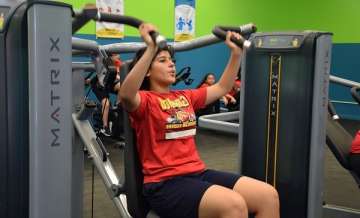
Sound Body Sound Mind
Addresses youth wellness and combats childhood obesity through placement of fitness centers and programs in schools throughout the Greater Los Angeles Area.

Spiritual Care Program
Offers interfaith spiritual care to all patient populations, their families, and hospital staff.
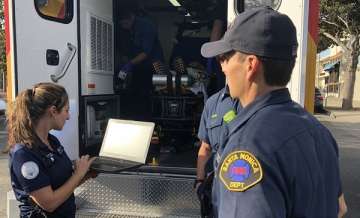
UCLA Arline and Henry Gluck Stroke Rescue Program and UCLA Health Mobile Stroke Unit
Provide rapid response stroke diagnosis and treatment.
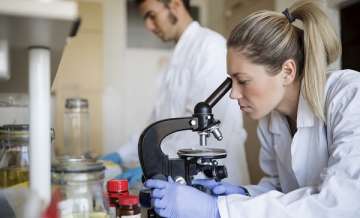
UCLA Health Clinical Innovation Network and Biodesign Fellowship
Advance novel technologies, treatments, and patient care delivery.
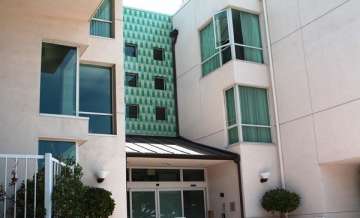
UCLA Tiverton House
A 100-room hotel near Ronald Reagan UCLA Medical Center meets the needs of patients and families; support provides resources enabling UCLA Health to offer financial assistance to vulnerable patients for housing and living expenses.
UCLA Health President's Strategic Fund Supports Vulnerable Populations
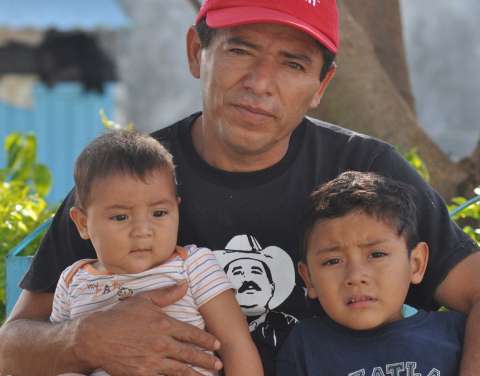
We believe finances should never be an obstacle to receiving appropriate care.
UCLA Health provides care, medicine, and medical equipment and pays health-related expenses for un- and under-insured patients in our hospitals and clinics. The increase in the number of at-risk people points to the necessity of expanded UCLA Health capacity to meet the basic needs of these populations with essential health care that can transform their lives.
Sponsoring the Most Complex Cases for Vulnerable Patients
The majority of healthcare resources are consumed by 20 percent of patients with the most complicated health conditions. These cases—ranging from pediatric to geriatric, and often requiring UCLA’s unique expertise in organ transplant, oncology, and neurology, among others—are managed by the UCLA Health Complex Care Team.
Complex medical cases with financial hardship are escalated to UCLA Health President Johnese Spisso for consideration. Philanthropic resources, combined with insurance and public assistance, enable her to assess UCLA Health’s financial commitment in accepting the case. Thanks to support from the President’s Fund for Greatest Needs in Patient Care, such cases can be accepted with the knowledge that there are resources to meet the care needs of each patient.
Johnese Spisso, M.P.H.

Johnese Spisso, who oversees all UCLA Health hospital and clinic operations as well as UCLA Health’s regional outreach strategy, is a nationally recognized academic health care leader with more than 30 years of experience. Before coming to UCLA in 2016, Ms. Spisso spent 20 years at UW Medicine, in Seattle, Washington, where she was chief health system officer and vice president of medical affairs for the University of Washington. While there, she played a major role in expanding collaborations with regional hospitals and in the operational integration of two major community hospitals into UW Medicine.
Trained as a registered nurse, Ms. Spisso rose through the ranks at UC Davis Medical Center to direct critical care; trauma, burn and emergency services; and the Life Flight Air Medical Program. Before that, she was a critical care nurse in the medical, surgical, and transplant intensive care unit at the University of Pittsburgh Medical Center Presbyterian.
Ms. Spisso received a master’s degree in health care administration and public administration from the University of San Francisco, and a bachelor’s degree in health sciences from Chapman College. She received her nursing degree at the St. Francis School of Nursing.
Support UCLA Health’s Hospital Initiatives and the President’s Fund for Greatest Needs in Patient Care
For more information about how you can support, please contact:
Ellen Haddigan-Durgun
Senior Executive Director, Hospital Initiatives
UCLA Health Sciences Development
(310) 321-8366 or [email protected]
